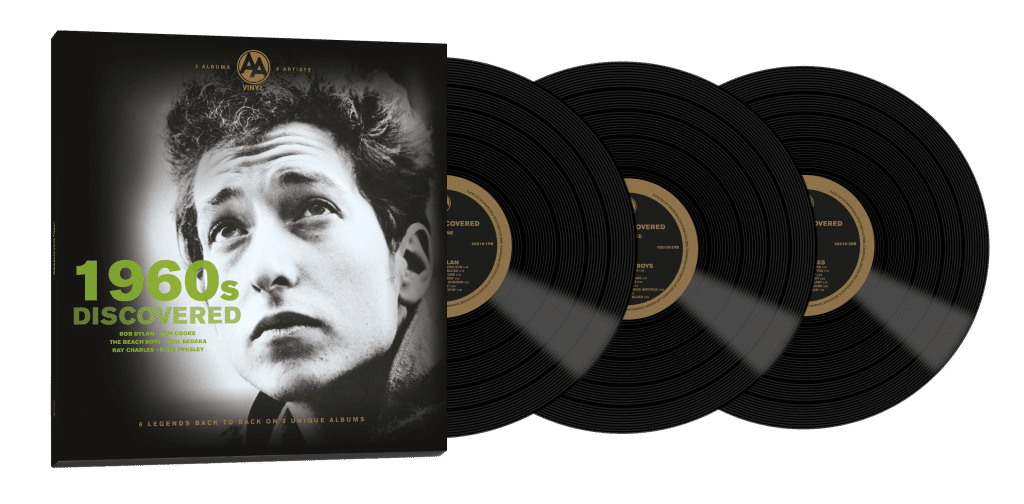
1960’s DISCOVERED
The Sixties was a decade of social upheaval and social progression in America and music was at the vanguard. Slowly the old barriers seemed to be coming down. The Civil Rights Movement made its most strident protests against racial segregation at this time, and although the Civil Rights Act 1964 had come to pass, shifts in institutional attitudes had not taken place. Similarly, women demanded equality, equal pay and equal opportunities. This increasingly politicized environment gave rise to songs of protest, and Bob Dylan, Sam Cooke and Ray Charles – featured in this collection – were instrumental in this trend. And while Elvis certainly cannot be said to have played a key role in the movement, even his detractors would have to concede he did more than most to bring to prominence black music and thus breaking down barriers.
This was a period in which the countercultural urge saw young people turn their backs on mainstream culture. This counterculture was wholly anti-establishment in nature. It started in America before spreading out to engulf much of the western world. The countercultural impulse was given impetus through the Civil Rights Movement and took a revolutionary turn with the anti Vietnam War protests. Often seen as emerging after the assassination of President John F. Kennedy in November 1963, the countercultural movement was increasingly articulated through a perceived ‘generation gap’. Young people were calling all aspects of life, human experience and the American Dream, into question. This was articulated in a variety of ways including, alternative political models, alternative lifestyles, experimentation with drugs, sexual exploration and liberation, and a distrust of the authorities.
Thousands of young people across America answered Professor Timothy Leary’s call to, “Turn on, tune in, drop out.” They embraced new musical styles and artists responded through increased experimentation, thus pioneering new music that stood out from the mainstream. The Beach Boys are a great example of this with their California Sound. As the decade drew to a close, there was also a shift away from the factory style of song production, so characteristic of the industry in the fifties, where professional composers produced hit after hit for artists. This period saw the rise of the singer songwriter and hit-maker Neil Sedaka began to perform his own compositions himself. The decade was about so much more than the British invasion, swinging London and the Mersey Sound. The story of the sixties is one of the old co-existing with the new and all the artists included here had a part to play. Welcome to this musical exploration of the sixties.

